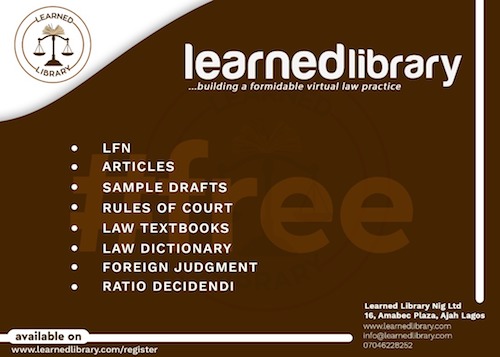By Asagunla Anjolaoluwa
Introduction
On October 11, 2025, Nigerians were captivated by a viral video showing a tense confrontation between the Minister of the Federal Capital Territory (FCT), Nyesom Wike, and Lieutenant A.M. Yerima (reportedly Ahmad M. Yerima) of the Nigerian Navy. The incident took place on a disputed piece of land in Abuja.
In the video, Lieutenant Yerima appeared gallant, confident, and firm, standing his ground on orders from his superior despite Minister Wike’s repeated demands for a permit. The Minister, however, appeared infuriated and even insulted the officer during the confrontation.
While many online spectators hailed Lieutenant Yerima for his boldness and ability not to be intimidated, various online attorneys contributed commentary, though not all opinions were substantial or legally accurate, regarding who was legally right and what the law permits in such situations.
The land reportedly belongs to Vice Admiral Awwal Zubairu Gambo (CFR, psc, AM, GSS, ensp, RSA, MTM, MUSN, FCIS, FIIPS, FCAI), a retired Chief of Naval Staff appointed by former President Muhammadu Buhari in 2021. The viral debate raised critical questions:
Who was legally correct Minister Wike or Lieutenant Yerima?
Can a military officer lawfully protect private property?
Does a superior military order override civil authority?
In a country that runs a democratic system, whose order truly stands?
To separate social media hype from legal reality, it is important to examine Nigerian law on military obedience, civilian authority, and land administration.
The Role of the Military Under Nigerian Law
Section 217 of the Constitution of the Federal Republic of Nigeria, 1999 (as amended) provides the primary duties of the Nigerian Armed Forces. These include defending Nigeria from external aggression, maintaining territorial integrity, suppressing insurrection, aiding civil authorities under specific, official directives, and performing other functions prescribed by the National Assembly.
The Armed Forces Act (Cap A20, LFN 2004) further details the roles of military personnel, their command structure, and disciplinary procedures. The specific duties of the Nigerian Navy include defending territorial waters, safeguarding maritime resources, combating maritime crimes such as piracy and illegal fishing, securing offshore installations, supporting civil authorities in coastal operations, and conducting search and rescue missions.
It is important to note that protecting private land or property is not a primary duty of the military. Land disputes fall under the jurisdiction of civil authorities, courts, and the police.
Orders, Obedience, and Legal Boundaries
Military discipline relies on obedience to orders, but obedience has limits. Orders from superiors carry a presumption of legality, and junior officers are expected to follow them to maintain the chain of command. However, officers are legally obligated to refuse manifestly illegal orders, such as those violating the Constitution, statutory law, or service regulations.
In the case of Nigerian Air Force v. James (2002) 18 NWLR (Pt. 798) 295 and Onunze v. State (2023) 8 NWLR (Pt. 1885) 61, confirm that the “just following orders” defence is invalid if the order is clearly illegal. This aligns with the Nuremberg Principles, which reject blind obedience in the face of unlawful commands.
Section 114 of the Armed Forces Act also emphasizes that military personnel are criminally liable for civil offences. Obeying an unlawful order does not shield a superior officer from accountability.
Constitutional Supremacy
Section 1 of the Constitution establishes it as the supreme law of the land, binding all authorities and persons, including military officers. This means all actions by a naval officer, even under “superior orders,” must conform to the Constitution and laws derived from it. Any military order inconsistent with the Constitution or Nigerian law is null and void.
In a democratic Nigeria, the military is subject to civilian authority and the rule of law, unlike during past military regimes where decrees often superseded the Constitution.
Chain of Command and Presidential Authority
Only the President, as Commander-in-Chief, has the constitutional authority to issue direct, binding operational orders to military officers. The chain of command flows from the President to the Minister of Defence, who translates presidential directives into policies, then to the Chief of Defence Staff, and finally to the Service Chiefs, such as the Chief of Naval Staff, who execute orders within their branches.
A civilian minister (other than the Minister of Defence) cannot lawfully issue operational instructions to military personnel. Any conflict between a civilian minister and a military officer must be escalated through proper channels to the officer’s superior, the Minister of Defence, or the President.
Authority Over Land and Permits
Under the Land Use Act, all land in Nigeria is vested in the state Governor or, in the case of Abuja, the FCT Minister, who holds it in trust for the public. Civil authorities, like Minister Wike, have statutory powers to allocate, revoke, or regulate land use, but military personnel cannot override these civil procedures.
Carrying out work on land, such as construction or renovation, requires proper permits and approvals from local planning authorities. Required documents typically include:
Proof of ownership (C of O, Deed of Assignment, Survey Plan).
Development permit application forms
Architectural and engineering drawings
Structural stability reports.
Environmental impact analysis (for certain projects), and evidence of fee payments.
Legal Responsibility in Conflicts
Responsibility in conflicts between military orders and civilian authority is clearly delineated:
Lieutenant A.M. Yerima is obligated to follow lawful orders from his superior but is not required to obey manifestly illegal commands.
The superior officer who issues an unlawful order bears primary responsibility for the act and can be disciplined.
Civilian ministers, like Minister Wike, cannot give direct operational commands to military officers; they must escalate through official administrative channels.
The President, as Commander-in-Chief, holds ultimate authority over lawful military orders.
The correct procedure for a civilian minister is not direct confrontation with the junior officer but escalation through the military chain of command.
The Armed Forces Act and Accountability
Section 114 of the Armed Forces Act explicitly holds military personnel criminally liable for civil offences. If an order leads to the commission of a civil crime, the officer who obeys the order remains accountable.
The Act also emphasizes that obedience is mandated only for lawful or legitimate orders, which must be within the bounds of the law. Any order that violates the Constitution is automatically unlawful, as the military is subject to civilian authority and the rule of law.
This reinforces that Lieutenant Yerima was not legally required to obey an order to guard private property, as such an action falls outside the military’s constitutional duties.
Conclusion
The viral confrontation between Minister Nyesom Wike and Lieutenant A.M. Yerima illustrates the delicate balance between civilian authority and military obedience in Nigeria. While military officers must follow lawful orders, they cannot act on commands that fall outside their constitutional duties. Civilian ministers have administrative authority over land and permits, but they must use proper legal and administrative channels to resolve disputes.
Ultimately, lawful authority not boldness or intimidation determines whose order stands. The Constitution, the Armed Forces Act, and established civil procedures guide how conflicts between civilian administration and military duties should be managed in a democratic Nigeria.
REFERENCES
Constitution of the Federal Republic of Nigeria 1999 (as amended)
Land Use Act Cap L5, Laws of the Federation of Nigeria 2004
Armed Forces Act Cap A20, LFN 2004
Nigerian Air Force v. James (2002) 18 NWLR (Pt. 798) 295
Onunze v. State (2023) 8 NWLR (Pt. 1885) 61
Nuremberg Principles – International principle rejecting “just following orders” as a defense for unlawful acts.


